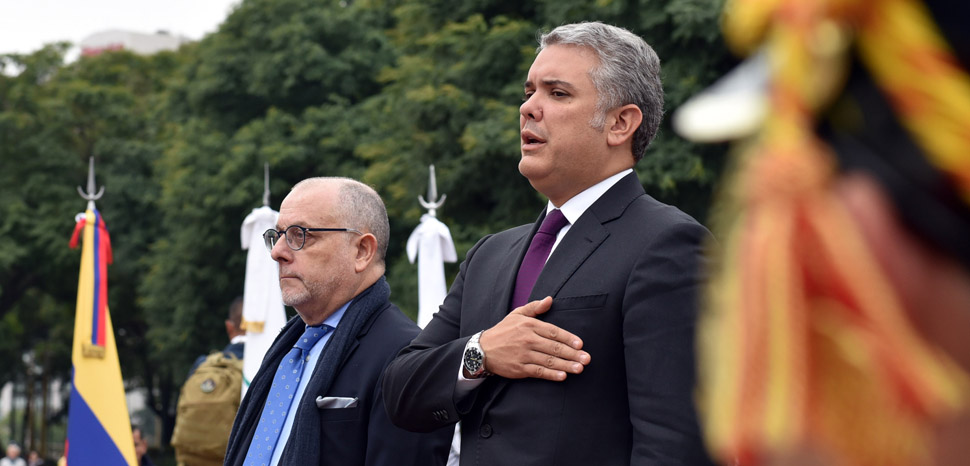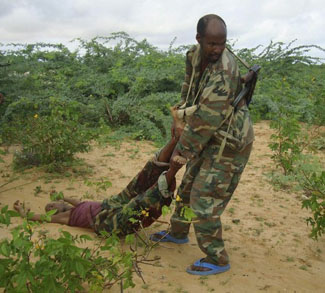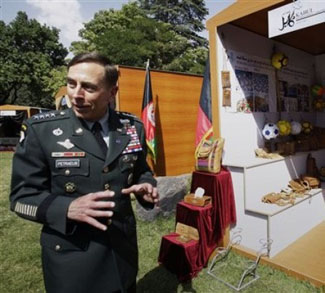President Biden has long stood on the side of Colombians in their war against violence and insurgency. Last October, he wrote of his admiration for Colombians recovering from the “ravages of terrorism” in a column for the Colombian newspaper, El Tiempo, and told his readers he believed that a US-Colombian relationship would bring security and prosperity. Now that he is president, he can make good on his promise, and begin to pivot US policy away from its singular focus on the drug war in favor of a more comprehensive, whole-of-government approach that incorporates counterterrorism. If Biden begins soon, he can weaken Colombia’s National Liberation Army (ELN)—one of the region’s most successful criminal groups—to its breaking point.
Certainly, at the moment, America’s spending and attention in Colombia are focused on the drug war, not terrorism. Since the early 2000s, the U.S. has spent $11.6 billion on Plan Colombia, a policy that was supposed to reduce illicit drug trafficking and improve security. If it was intended to stop drug exports, that money was wasted. A December 2020 report published by former members of the Obama administration states that while the policy “was a counterinsurgency success, it was a counternarcotics failure.” In 2018, the U.S. and Colombia agreed to halve cocaine product by 2023. A year later, coca eradications had increased, but cocaine cultivation hit record highs.
Plan Colombia’s greatest counterinsurgency success was the 2016 peace deal between the Colombian government and the Revolutionary Armed Forces of Colombia (FARC), but even that breakthrough has encountered challenges. After a drastic reduction in homicide rates in the months following the agreement, about 1,800 dissidents (25 percent of the pre-peace FARC membership) returned to violence. Meanwhile, Colombia has diverted security forces to labor-intensive manual coca eradication to meet benchmarks at the cost of public safety. The U.S. should encourage Colombia to reassign such forces to security missions. The best way forward would be to take advantage of counterinsurgency successes and incorporate lessons learned from the Peace Accord and Plan Colombia into a strategy to defeat the ELN.
The Colombian government also conducted peace talks with an ELN delegation in Havana, but continued terrorist attacks during negotiations disrupted talks. At around 2,000 fighters, the ELN is smaller and more decentralized than the FARC once was, but it has waged a gruesome campaign of terror that targeted police and military forces, the energy sector, and human rights defenders. The ELN delegation never reached an agreement with the Colombian government, as President Ivan Duque cancelled talks following the ELN’s January 2019 bombing of a police academy in Bogota, which killed 22 and injured 68. Duque then called upon Cuba to extradite the ELN delegation, but Cuba refused, citing the peace talk protocol granting the representatives safe passage to their bases in rural Colombia in the event negotiations should end without reaching an agreement. The delegation remains in Havana.
Duque’s hardline stance toward the terrorist group and recent events have contributed to a cohesion crisis within the ELN. A recently-intercepted ELN communique reveals the organization struggles with internal division due to physical dispersion (referring to its delegation stranded in Cuba). The writers denied speculation of an ideological rift giving way to two ELNs—one in Venezuela and one in Colombia. This rift, however, is growing, as the ELN in Venezuela continues to grow through recruiting and illegal mining to finance operations, while more and more ELN fighters in Colombia would accept demobilization to end the long conflict. Such division has occurred among other enduring Andean revolutionary terrorist organizations during crises. After Abimael Guzman’s arrest in 1992 and his call for followers to pursue peace, the Shining Path split between those disbanding for peace and those labeling Guzman a traitor. The FARC underwent a similar rupture with peace talks, as a small fraction of dissidents refused to lay down their arms. This document also reveals that the FARC’s demobilization has weakened morale among ELN members and contributed to a perception of their irrelevance in national politics. The ELN’s waning solidarity in this self-labeled moment of crisis is a harbinger of this schism and precursor to successful peace talks, but the U.S. and Colombia must increase pressure to reach that end.
Despite the cohesion crisis, there is little indication that negotiations in the near future would actually produce enduring peace. The ELN failed to deliver on a unilateral ceasefire announced 29 March 2020 in response to the COVID-19 pandemic. Recent ELN publications indicate group leaders do not expect Biden to modify U.S. policy objectives for Colombia or reverse the re-designation of Cuba as a state sponsor of terror. The ELN communique further casts doubt on any near-term peace negotiations, as it reflects urgency for the delegation in Havana to return to Colombia, even if it is simulating a process of peace. Instead, the ELN’s challenges will likely lead its members to increase the frequency and severity of attacks to gain relevance and leverage. There are already indications of increased activity. On 8 February, the Cuban government notified the Colombian government of alleged ELN plans for a terrorist attack in Bogota.
The U.S. should work with Duque to further weaken the ELN and further polarize the group between those seeking peace and those committed to violence. One way is to provide financial support to Duque’s Timely Action Plan on Prevention and Protection, aimed at protecting human rights defenders from violence perpetrated by the ELN. Shifting U.S. intelligence assets to support the Colombian Army’s newly-established Command Against Drug Trafficking and Transnational Threats can also pay dividends in terms of consolidating gains and legitimizing this ally’s institutions. In preparation for eventual peace talks with the ELN, the U.S. should assess the feasibility and effectiveness of the substitution program included in the peace agreement with the FARC, wherein the government paid farmers to uproot coca fields and plant alternative, legal crops. Even though peace negotiations are unlikely to take place during Duque’s tenure, Biden can further weaken the ELN and foster conditions for successful negotiations under a peace advocate succeeding Duque.
Matthew A. Hughes is a graduate student attending Johns Hopkins University. The opinions expressed in this article are those of the author alone and do not reflect the official position of the U.S. Army, the Department of Defense, or the U.S. Government.




